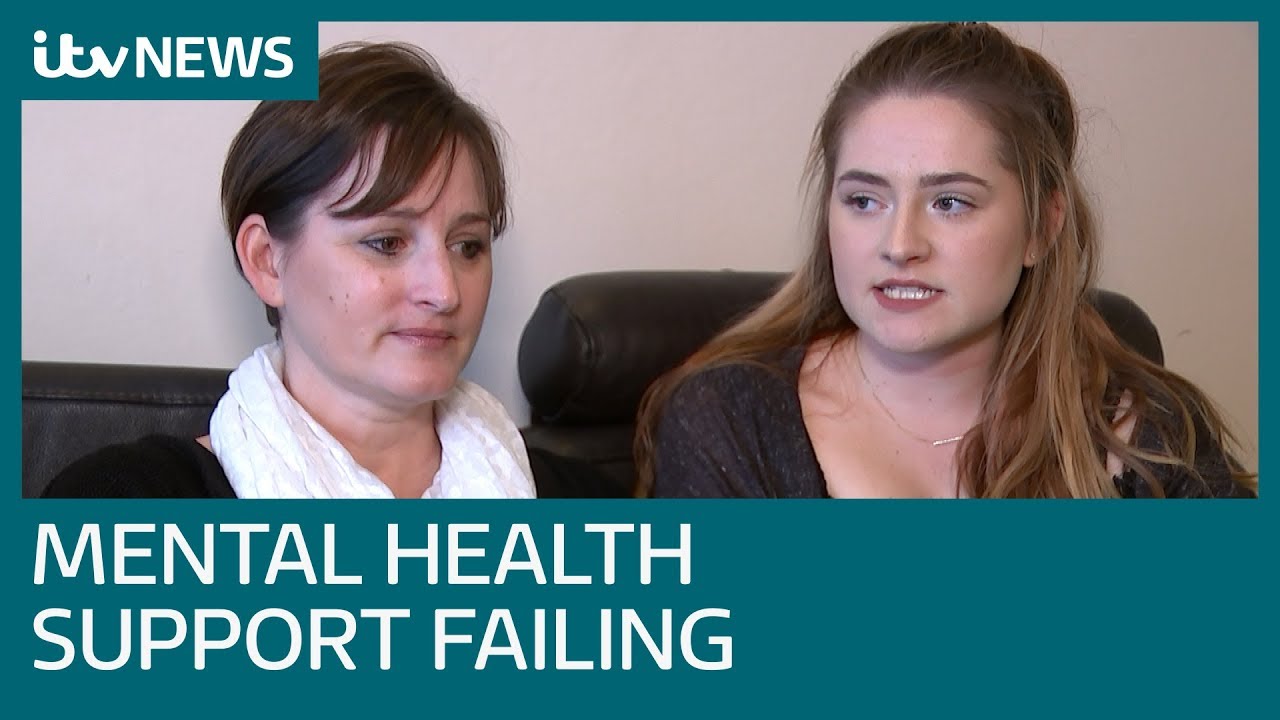When we talk about mental health services, the focus is shifting from merely managing symptoms to transformative healing. In recent years, a significant change in how mental health is approached has been making waves, focusing not only on individual struggles but on revitalizing lives. This isn’t just about coping; it’s about thriving. Cognitive Behavioral Therapy (CBT) has emerged as a standout approach, helping clients reframe negative thoughts and dismantle behaviors that hold them back. Clinics like the Beck Institute for Cognitive Behavior Therapy have showcased success stories, demonstrating the immense value of transformative techniques in boosting the quality of life for those facing anxiety and depression.
As we delve deeper, it’s necessary to highlight that these innovative approaches to mental health service do not work in isolation. They work collectively, merging various methods to maximize healing and support individuals. Parents, such as those supported by Mothers Against Addiction, often find themselves navigating the treacherous waters of their children’s struggles with addiction. The emotional toll can feel overwhelming—confusion, sadness, frustration—it’s a constant battle. Mental health services are stepping up to not only support individuals but to provide a comforting blanket for families that often feel isolated in their challenges.
Advancements in mental health care are changing lives every day. Through training and resources, organizations are helping parents of children grappling with addiction or those grieving the loss of their children. By embracing new paradigms in therapy, these mental health clinics are truly transforming lives, demonstrating compassion and resilience that resonates at the core of every parent’s love for their child.

1. The Heart of Transformative Mental Health Services
In today’s society, healthcare is evolving, particularly in the realm of mental health. Recognizing mental illness not as a weakness but as a serious health condition is crucial, propelling services toward a more holistic and person-centered approach. At the forefront, CBT stands out with its evidence-based techniques, demonstrating transformative power within clinical settings. By facilitating a better understanding of cognitive processes, CBT has been instrumental in helping countless individuals reconstruct their perspectives—invaluable for those facing the grim realities of addiction.
Moreover, organizations are increasingly advocating for a mental health service that encompasses a wide variety of therapeutic approaches. From institutional support to community-based initiatives, these services are not just ‘treatments’ but pathways to empowerment. Programs like Families Anonymous provide resources specifically geared towards the family unit, understanding that addiction doesn’t solely impact the individual. When a loved one enters treatment, hope ignites within families, fostering resilience and rebuilding connections that addiction has fractured.
The engagement with mental health services is vital. It signifies a willingness to confront challenges head-on, paving the way for healing and understanding. Communities must rally together to support these transformative endeavors. As parents and caregivers, knowing where to turn when faced with addiction can often be daunting. That’s where organizations like Mothers Against Addiction step in, offering guidance, resources, and a sense of community during times of heartache.

2. Top 5 Cutting-Edge Mental Health Services Making a Difference
The landscape of mental health service is shifting rapidly. It’s not just about traditional institutions anymore; innovative services are leading the charge and transforming lives. Here’s a closer look at five groundbreaking approaches making a real difference in mental healthcare:
2.1. Teletherapy Platforms: A New Frontier
Platforms like BetterHelp and Talkspace are eliminating barriers to mental health care. By allowing individuals to connect with certified therapists via video calls or messages, they provide a much-needed solution for many who may feel daunted by in-person sessions. Reports indicate that patients using teletherapy express higher satisfaction, often feeling relaxed discussing their issues from the comfort of their homes. This accessibility is vital, especially for the parents, who might struggle to find time while navigating their child’s struggles with addiction.
2.2. Holistic Approaches: A Well-Rounded Mindset
Institutions like the Santa Barbara Institute for Consciousness Studies adopt a holistic approach, integrating traditional therapy with practices such as yoga and mindfulness. This connection between mind and body fosters a more comprehensive understanding of mental health. Clients have reported not only a decline in anxiety but also a newfound sense of joy and stability in their everyday lives. For families affected by addiction, incorporating these practices can become a crucial tool for managing stress and improving overall emotional health.
2.3. Peer Support Networks: The Power of Community
The SMART Recovery program exemplifies the importance of community within healing. It focuses on empowering individuals to overcome addiction by connecting with peers who understand their struggle. This model encourages self-empowerment, and individuals often find comfort in sharing experiences within a supportive network. Many participants report lower relapse rates when engaged actively in such communities, highlighting the pivotal role that connections play in sustained recovery.
2.4. Personalized Treatment Plans: Tailored for Success
Pioneering facilities like Mayo Clinic’s Behavioral Health Services offer customized treatment plans, moving away from a cookie-cutter approach. By utilizing mental health assessments and genetic testing, they create uniquely designed strategies for each patient. Research indicates that personalized treatments can significantly enhance recovery times and improve adherence. This innovative approach is vital for families wrestling with the complexities of addiction, as it empowers parents and their children with a roadmap tailored just for them.
2.5. Innovative Technologies: The Future of Mental Health
Emerging technologies, particularly virtual reality (VR) therapy, are setting new standards in how mental health services engage with patients. Utilizing VR therapy, clinics like Oxford VR help individuals face their fears in controlled, immersive environments. Early studies show it can lead to remarkable reductions in PTSD symptoms and phobias, showcasing how technology can revolutionize recovery approaches, thus offering new hope to parents fearful for their children’s well-being.

3. The Importance of Accessibility in Mental Health Clinics
Accessibility remains a significant challenge in mental health care. Many individuals face barriers that inhibit their ability to seek help—barriers that shouldn’t exist. However, organizations such as NAMI (National Alliance on Mental Illness) and various government initiatives are tirelessly working to improve access. Innovative mental health clinics are now offering sliding scale fees and free services, acknowledging that financial strain shouldn’t prevent anyone from seeking care.
For parents who have already been through so much, knowing that help is within reach can be a game-changer. Mothers Against Addiction plays an essential role in advocating for these accessible services. They ensure that the voices of parents are heard and considered, helping create an environment where care is genuinely attainable.
Furthermore, mental health services are broadening their reach into underserved communities. By prioritizing accessibility and bridging gaps, these services are fostering hope for families during some of their toughest moments. Each step taken towards accessibility is a step toward healing and community support.

4. The Impact of Mental Health Services on Families
Mental health services don’t just help individuals; they have a profound impact on entire families. A well-rounded mental health service can fundamentally alter family dynamics. When a loved one receives treatment, relationships often improve—communication becomes clearer, stress decreases, and family health strengthens. Organizations like Families Anonymous offer supportive environments for family members, promoting emotional stability for everyone involved.
Notably, these transformations aren’t just anecdotal; research has highlighted the positive ripple effects within families when their members receive appropriate care. Parents witness renewed hope, strength, and resilience in their loved ones, which in turn bolsters their capacity to cope with their own challenges.
Families also learn to adapt to a new normal, embracing change rather than shying away from it. The collective journey of facing mental health or addiction challenges can strengthen bonds and deepen understanding among family members. As they engage in healing together, they cultivate a nurturing environment that promotes recovery and resilience.

Crafting a Brighter Future with Integrated Mental Health Services
The evolution of mental health services showcases a vital shift in society’s perspective on mental health issues. No longer are they relegated to silence; they’re actively encouraged and addressed. With continuous advancements, innovative approaches, and a commitment to accessibility, mental health clinics revolve around not just treating disorders but genuinely transforming lives.
As communities rally behind these services, hope continues to shine brightly. Each mental health service represents a beacon of renewal, empowerment, and resilience for those navigating the depths of addiction. Parents facing the unimaginable now have support, resources, and a community ready to stand beside them.
Together, we can continue crafting a vital and compassionate environment that champions mental health, ensuring that every individual—no matter how dire their situation—can find the hope and support they deserve. Families, especially those impacted by addiction, remain at the heart of this transformation, paving the way for a future filled with understanding, healing, and strength.
Mental Health Service: Transforming Lives
The Impact of Mental Health Services
Did you know that mental health services can greatly reduce the risk of long-term disability? These services are vital for those dealing with addiction and other mental health challenges. Research shows that effective mental health interventions can lead to improved quality of life and better relationships. The Department Of Health And Human services actively supports various mental health programs, aiming to create a healthier society. This commitment underscores the idea that seeking help is a strength, not a weakness.
Furthermore, engaging in mental health support can enhance your financial well-being. For instance, individuals using mental health services might qualify for Ssi survivor Benefits, providing essential financial stability during tough times. It’s fascinating how emotional wellness can directly affect one’s financial landscape—who knew mental health could hold such weight in personal finance?
The Community Role in Mental Health
Community-driven initiatives often play a massive role in making mental health services accessible. Did you know that certain programs work actively to activate Wea in Region 6? These initiatives strengthen support networks, showcasing that we’re stronger together. Engaging with community resources can elevate an individual’s support system and promote healing, reaffirming the vital role of social connections in mental health recovery.
And let’s not forget, mental health services can offer unique support mechanisms that change lives every day. For example, families impacted by addiction might benefit from understanding trauma and its effects—after all, it’s essential to learn the Tress definition. Knowledge can empower families to navigate their challenges and create pathways toward healing.
In summary, the impact of mental health services is profound, intertwining financial stability, community support, and personal empowerment, transforming lives in ways we might not always recognize. Plus, with listings for mortgage rate predictions in 2024, and insights on Freddie Mac Vs Fannie mae, it shows that taking care of your mental health can have real-world financial implications! Awareness and participation in these services can lead to brighter tomorrows, proving that healing is not just an abstract idea—it’s a concrete possibility.


























